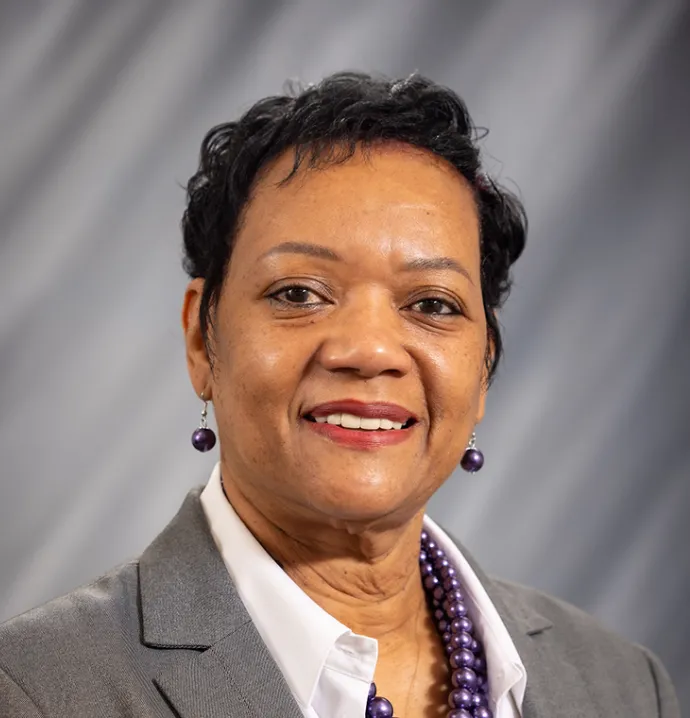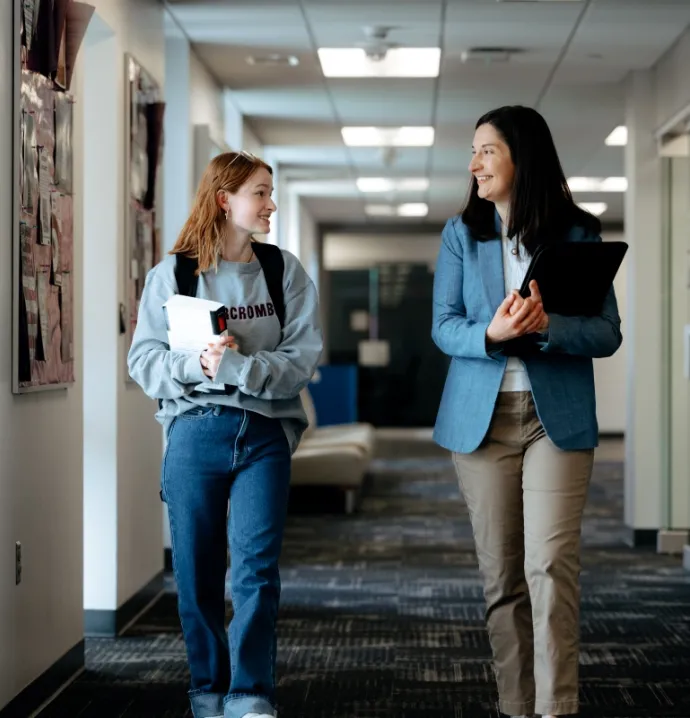Panthers on the frontlines among first to receive COVID-19 vaccine
Panthers on the frontlines among first to receive COVID-19 vaccine
Working as a CNA at Mercy One Medical Center in Cedar Falls, junior pre-med biology and global health major Mikaela Elenz risked her health protecting COVID patients, some of whom died. Now, she, and other Panthers, are among the first in the state to get vaccinated, providing a welcome ray of hope after a difficult year of illness and uncertainty.
“It was kind of cathartic to be able to get the vaccine after I had watched all the trauma and havoc that coronavirus has put on families and communities,” said Elenz, who sees the vaccine as an important step in ending the pandemic.
UNI alum Dr. Robert Mixsell, medical director for Genesis Convenient Care in the Quad Cities, was among the first in the entire state to receive the vaccine. He trusted the science and encouraged others to get inoculated as the vaccine becomes more widely available.
“It was a pretty difficult year just with the uncertainty of everything. Throughout the spring, summer and fall, there was no end in sight,” said Mixsell. “Once we knew that the vaccine was coming, myself and my colleagues just did a big sigh of relief. That’s when we finally saw a light at the end of the tunnel ... It has definitely changed the outlook to a more positive one.”
While Elenz was also hopeful, she had some hesitations about the vaccine. Despite working in healthcare herself, she hates going to the doctor and was anxious about potential side-effects. However, she did not experience significant side-effects after receiving both rounds of vaccinations.
“I was scared I was going to have a reaction and something bad was going to happen. I’m a what-ifer,” she said. "I actually did have ... a pretty high fever for a few days [after my second vaccination, but it] subsided a few days later. Experiencing the side effects actually made me feel better about receiving the vaccination. I knew my immune system was already working to build up immunity against the virus."
Common side-effects include soreness at the injection site, body aches and chills, which Mixsell experienced and, he said, are a natural immune response. The vaccine uses a snippet of mRNA to trigger the body's production of antibodies, which often results in these side-effects.
"If you’re feeling ill, that means your body is making antibodies to the vaccine contents,” he said. “Not everyone’s gonna’ experience that, but it just means that it’s working.”
Elenz’s classes at UNI helped her make sense of the pandemic — she was learning about viruses and vaccines in class just as the coronavirus pandemic was making its way to Iowa. Now, she plans to use that knowledge — and her own experiences with the vaccine — to help educate her patients.
“In my cell structure and function class… we learned about vaccines … that gave me foundation to educate other people,” she said. “I think people like when you can relate to them. I think it may be a little relieving to them to see someone who is educated to have a little bit of doubt. But my knowledge gives me the power to help people feel a little safer.”
Mixsell also found himself thinking back to the foundational education he received at UNI. Though he has years of experience — he’s always wanted to go into healthcare and has worked in hospitals since high school — his UNI education helped prepare him to succeed in med school and his eventual career running a health clinic.
“Having gone through cell biology and microbiology back at UNI, those things that I learned back then, I still draw from,” he said.
The COVID-19 pandemic and the quick production of effective vaccines have been learning experiences as well — for Mixsell and Elenz, and the broader medical community.
“We’ve learned a lot about just pandemics in general. We’ve never gone through one before, so the learning curve has been pretty big,” said Mixsell. “I have a lot of gratitude for the scientific community for the work that they do. I’ve been quite impressed that we’ve been able to come up with an effective vaccine so quickly. I think it will definitely leave us better prepared for the future, if something else should come along.”
Though the vaccine has given Mixsell and Elenz a new sense of hope in the wake of the pandemic, they both caution against easing up on precautions just yet. Until February 1, Iowa is in Phase 1A of the vaccine rollout, meaning only frontline workers and long term care residents are eligible to be vaccinated.
“The pandemic is not on hold because of the vaccine. It’s still happening,” said Elenz. “Even if people are acting more relaxed because of the vaccine, they shouldn’t until we’ve reached herd immunity and we have not. We’re not even close.”
But the vaccine is a certain sign of progress, and a key part of getting the virus under control and regaining a sense of normalcy.
“The more people that get the vaccine, the more herd immunity is going to get built up .. and we can have some more of that normalcy,” said Mixsell. “Stay socially distant and just stay focused. If everyone stays focused and keeps that goal in mind, then we’ll get there.”




